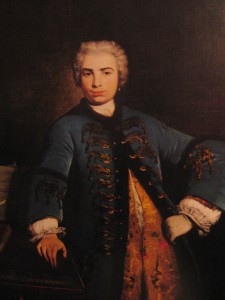The Fantastical World of Hormones, a BBC film released in 2014, reimagines our perception of hormones from a thought-provoking, historical angle. The documentary is hosted and led by a former chair of the Society for Endocrinology, John Wass, who traces the milestones that have led to our modern understanding of these puzzling, powerful chemical messengers. Wass attempts — and mostly succeeds — to unveil the little known, “fantastical world” of history behind hormones.
The film begins by featuring Renaissance Italy’s “castrato” opera singers, who preserved their prepubescent voice through castration. Without their testes or the male hormone testosterone, castratos never achieved puberty, illustrating just how influential a single hormone can be. Instead, these castratos entered adulthood with effeminate hairlines, absent Adam’s apples, and soprano voices. From Italy, Wass guides us to the present, sweeping through landmark experiments and discoveries to show how our understanding of hormones has evolved over time. Wass’s journey shows that what we now know about hormones has emerged gradually, and through many different efforts.

Image courtesy of galleryhip.com.
Wass begins and ends by grazing the theme of the diverse influences that hormones have within the body. Still, the scope of his script is too limited to fulfill his early claim that hormones “can rule our lives and shape our destinies.” Although the science presented in the film is clear, enhanced by graphics and animations, it lacks any complexity. Wass only scratches the surface of the science and diversity of the hormones within us, choosing to focus primarily on testosterone, rather than the variety of structures, functions, and origins that characterize the hormone spectrum. A stronger documentary on this topic would have discussed hormones with greater breadth and scientific detail.
Where Wass’ documentary falls short in explaining the science behind hormones, it offers surprising historical depth, and it creates a rich narrative out of three centuries of scientific research. By matching compelling stories with exciting science, Wass is truly able to take viewers on a vivid journey. The Fantastical World of Hormones brings life to the hidden stories behind the biological molecules that affect so much of our lives.
Cover Image: John Wass is a prominent endocrinologist who served as both chairman for the European Federation of Endocrine Societies and chair for the Society for Endocrinology. Currently a professor of endocrinology at the University of Oxford, he guides viewers through the history of hormones in this BBC film. Image courtesy of BBC.
